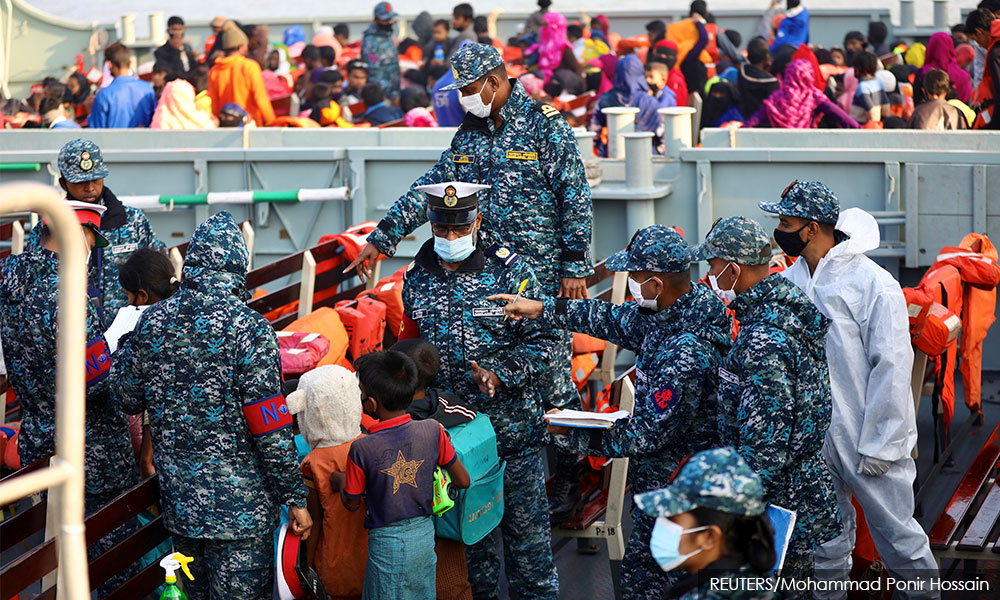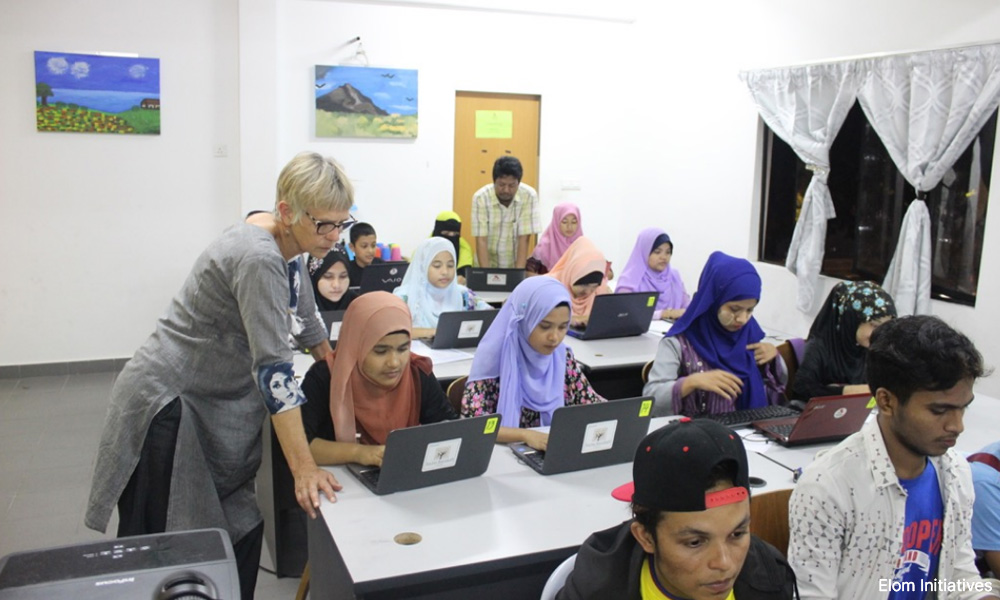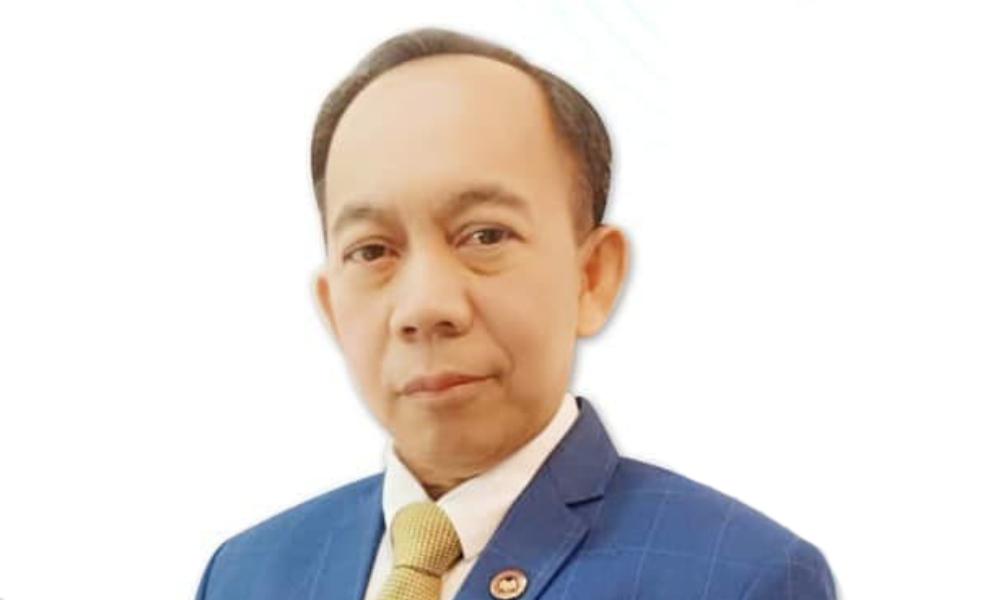Every now and again, Malaysians renew my faith in the country and our society.
As a journalist, I have covered many stories. Aside from the political ones, I have also covered many conflict and humanitarian stories as well. These stories have, obviously, left an indelible mark on the way I view and live life. In fact, it has even affected the way I teach my children to live their lives.
I have covered war and conflict in countries such as Afghanistan and Lebanon. I have seen how war violence affects innocent civilians in the most extreme way, from death to, even worse, a life of suffering and torture. And so I tend to produce stories that focus on that perspective, hoping to create some awareness about it in our society.
I have also covered uprisings and revolutions in the Middle East and North Africa during the Arab Spring. I have also seen how these have affected the lives of ordinary citizens, even causing death. All of the things I have witnessed as a journalist have made me realise that there is more to producing stories just for the sake of producing stories.
One of the recent long-form stories that I have produced is a documentary titled We Are Animals, which documents the lives of Rohingya refugees in the world’s biggest refugee camps located in Kutupalong and Balukhali in Bangladesh. The camps houses approximately one million people who have fled their homes in Myanmar to escape oppression, persecution and violence against them.
We Are Animals was screened at the 2018 Refugee Festival and the 2018 Cooler Lumpur Festival. Watch it here.
The camp has existed for decades, and there are generations born and raised there today. Entering the camp, you realise that although they have decided to come, it is by no means that their lives are fine and dandy there. They have no running water, no electricity, no sewerage or irrigation, no education and no proper healthcare.
They aren’t allowed to leave the camp, let alone work, to make a living. Yet, they still chose to make the move rather than stay in their home country of Myanmar.

So can you imagine how worse their lives are back home that they are willing to live like how they do now in the refugee camp? Speaking to the camp’s inhabitants, you realise how bad it is.
They speak of being beaten, shot at, having their houses burned down and even witnessing their loved ones killed in front of their eyes. They talk of generations-long oppression where it is difficult for them to get a proper education, access to adequate healthcare and even opportunities for proper jobs. When they do choose to flee, they are hunted down and spend days and weeks running in the jungle.
The Rohingya have, as you are all aware, also arrived on Malaysia’s shores. It’s been decades since they fled here to escape their unlivable lives back in Myanmar.
As a journalist, I have covered their stories here in Malaysia too. Yes, they go through many challenges here as they try to survive. It may be a little bit better than being in a refugee camp, but still extremely difficult.
Not recognised as refugees
As you all must also already know, Malaysia isn’t a signatory of the 1951 Refugee Convention, which 145 countries have signed. That means our country does not recognise refugees as they are technically seen as illegal immigrants. Thus, the Rohingya are not allowed to work, go to school or access public healthcare. If the refugees are caught, they face deportation.
So that is why the Rohingya in Malaysia are struggling. The only work they can get is usually menial day jobs, and even then, they are often exploited due to their illegal status. Their children aren’t able to go to school, and when they get sick, their only option is to go for private healthcare, which they can’t afford. And if they get caught, they get sent back to a country where they might face death. Tough.
So I did mention in the first sentence of my article that every now and again, Malaysians renew my faith in them. So here it is.
From the many pockets of Rohingya around the country that I have covered, I heard from them about Malaysian neighbours’ kindness. Many live in harmony and understanding with them and also donate and help out however they can.
Due to donations and help from some Malaysians, a few Rohingya communities have even been able to set up informal educational centres for their children to get some form of education.

Recently, Wisma Putra has been working together with civil society groups and activists to come up with a status paper to ensure that Rohingya children receive a proper education.
Foreign Minister Saifuddin Abdullah has said that they will work towards certifying Alternative Learning Centres (ALC), which are run by the Rohingya communities or civil society groups. This is a great step forward, in my opinion and should be supported.
Even the Home Ministry’s Tracking Refugees Information System (Tris) can be seen as a positive move because, according to Home Minister Hamzah Zainuddin, it will give refugees who are registered access to public healthcare, education to registered alternative centres and job opportunities and training.
There are also many anecdotal accounts whereby the authorities have tolerated Rohingya refugees registered with the United Nations High Commissioner for Refugees (UNHCR). They are often left alone and not detained or deported. But these actions are, of course, not as widespread and definitely not systematic. But it is good and positive nonetheless.
In a position to help
It has been a long time since Malaysians have tried to persuade the government to recognise refugees and be a signatory of the convention. Even though the government has often acknowledged what is happening to the Rohingya in Myanmar and has been outspoken about it, it hasn’t taken any action on recognising refugees or signing the convention.
This is quite surprising for me. If we all recognise and acknowledge the problem, why won’t we do the one thing that can help? I feel that we are in a position to help.
If the concerns are that the Rohingya will cause a dent in our economy, then giving them legal status will enable them to work and contribute to the economy. That’s a win, isn’t it?
If it’s social problems like crime and whatever that is associated with social problems that are a concern, then again, giving them legal status will allow them to make a decent living and also to send their children to school. Wouldn’t that also help to solve social problems? They won’t be exploited as much by employers too if they weren’t holding illegal status.
I think it would be the wrong move if the government were to shut down the UNHCR’s office in Malaysia as suggested by the National Security Council director-general Rodzi Md Saad recently. He mentioned that shutting them down would enable Malaysia to manage refugees without external interference.

My initial thought is that if the government is sincere in wanting to assist refugees, then just like how they are engaging and working together with civil society organisations, they can also engage and work together with UNHCR.
According to the agency’s Communication and Public Information Unit Head Yante Ismail, it has begun discussions with the Foreign Ministry.
So, today, my faith in Malaysia has been renewed when it comes to the treatment of refugees. But let’s continue to be critical and push the government to take even more progressive steps to be a better country.
We, as Keluarga Malaysia, can always do more and be better. - Mkini
ZAN AZLEE is a writer, documentary film-maker, journalist and academic. He had waited so long for a change in the system and he is not willing to settle for a half-past-six change. And then the Sheraton Move happened. Visit fatbidin.com to view his work.




No comments:
Post a Comment
Note: Only a member of this blog may post a comment.